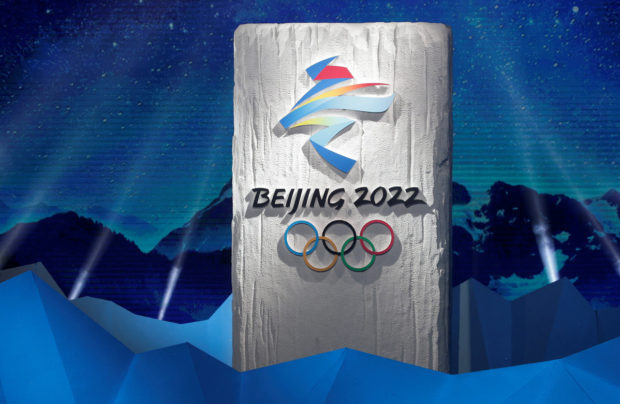2022 Olympics gear up with legacy venues

Emblem for the Beijing 2022 Olympic Winter Games is unveiled during a launch ceremony in Beijing, Dec 15, 2017. Agencies photo via China Daily/Asia News Network
BEIJING — Taking advantage of the fresh experiences shared by its counterpart in South Korea, the Beijing Olympic organizing committee is gearing up to host the 2022 Winter Games with legacy high on its agenda.
One item to emerge from a debriefing on Tuesday about the 2018 Pyeongchang Winter Olympics is the International Olympic Committee’s legacy-centered new norm — a 118-proposal reform that has been the guiding principal for Beijing to prepare for the 2022 Winter Olympics. It involves reusing previous venues to enhance sustainability.
This was evident in the location for the debriefing, western Beijing’s Shougang Industrial Park. It is a former steel mill site transformed to house the headquarters of the Beijing 2022 organizing committee.
“With regard to sustainability, you only need to look around in this Shougang Park and then you realize the Chinese organizers take sustainability as a core issue for their organization,” IOC President Thomas Bach said at the closing news conference of Tuesday’s debriefing.
The IOC routinely holds such debriefing sessions so the upcoming host city can gain insights from the previous organizers.
About 600 people, including IOC executives, local organizers, governmental officials and venue operators, took part in the Beijing debriefing, which featured a summary of Pyeongchang’s work hosting the 2018 Winter Olympics and breakout sessions focusing on operational issues that Beijing faces.
Beijing has pledged that any newly built venues for 2022, especially those for snow events, have taken into account or will incorporate post-Games plans.
“In addition to our existing venues and facilities, we are working closely with the IOC and relevant international sports federations to address issues regarding the use of all the new facilities after 2022,” said Chen Jining, Beijing’s mayor and executive president of the Beijing 2022 organizing committee.
Beijing 2022 will use 26 competition and non-competition venues in three zones — downtown, northwestern Yanqing district and co-host Zhangjiakou, Hebei province — connected by a new high-speed railway to be completed by the end of 2019. In the downtown zone, where all the ice sports events will be held, 11 out of 13 venues are legacies from the 2008 Summer Olympics, such as the Wukesong Arena, for ice hockey, and the Water Cube, for curling.
The reuse of existing venues coupled with the support from the IOC in cost-effectiveness and flexibility highlighted in its new norm will help Beijing 2022 set a benchmark for future Olympics, Bach said.
